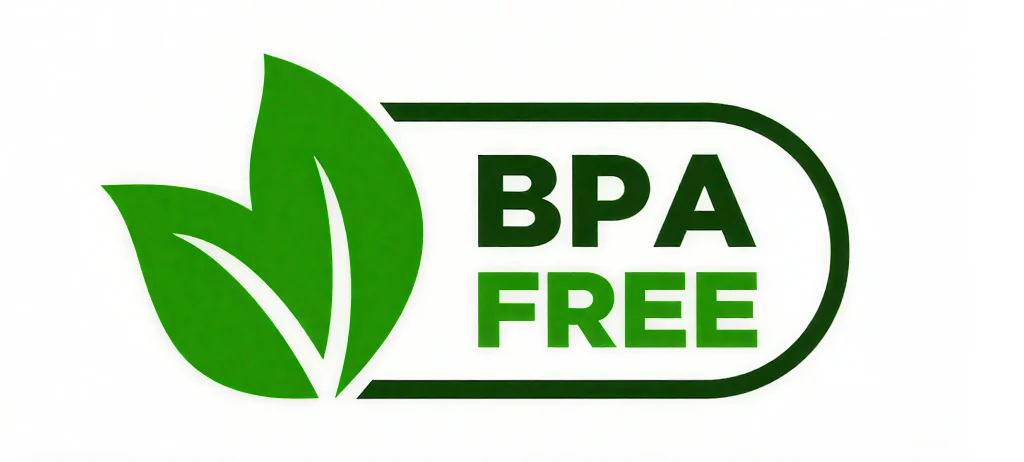The Distinction Between BPA-Free Bottles and Regular Glass Bottles
juillet 16, 2025
In the realm of packaging, especially for spirits and other consumables, the safety and quality of containers are of paramount importance. Two terms that often come up in this context are “BPA-Free Bottles” and “Regular Glass Bottles”. While they may seem similar at first glance, there are crucial differences that consumers and businesses should be aware of. This article aims to delve into these differences, shedding light on their implications for safety, compliance, and overall quality.
What is BPA-Free?
“BPA” stands for Bisphenol A, a synthetic chemical compound. BPA-Free simply means that a product does not contain Bisphenol A. This designation has become increasingly significant in the manufacturing of various products, particularly those that come into contact with food and beverages.

The Uses and Risks of BPA
Bisphenol A has long been used in the production of polycarbonate plastics and epoxy resins. Polycarbonate plastics, known for their durability and transparency, are used in making certain beverage bottles, food containers, and other similar products. Epoxy resins, on the other hand, are commonly applied as coatings on the inner walls of cans to prevent corrosion and ensure the contents remain intact.
However, research has uncovered potential health risks associated with BPA. It can leach into food and beverages, especially when the containers are exposed to heat or acidic substances. Long-term, low-level exposure to BPA has been linked to disruptions in the endocrine system. This is particularly concerning for sensitive groups such as children, pregnant women, and infants, as it may affect their growth and development.
In response to these risks, many countries and regions, including the European Union, the United States, and China, have implemented strict regulations on the use of BPA in food contact materials. Some have even banned the use of BPA in products designed for infants and young children, highlighting the global recognition of the need to limit BPA exposure.
The Meaning of BPA-Free
“BPA-Free” is not only a marketing ploy; it is a very real safety and compliance label. For food, drink, and the alcohol packaging procurement chain that includes both the consumers and the businesses, this label is a guarantee that the product’s contact parts are not BPA contaminated.
The “BPA-Free” label is a response to the concerns of users about the safety of the goods, and it enables them to choose products that are safe for their use. The usage of BPA-free packaging by businesses guarantees their compliance with the relevant regulations, thus ensuring that they avoid the potential legal crisis and the subsequent damage to their reputation. It is important to note that in a health-conscious market, the BPA-free label can further build the competitiveness of the product and attract consumers to a greater extent.
Comparison of BPA-free Bottles And Regular Glass Bottles
On a general note, glass bottles do not contain any BPA. The material of glass is inert, due to the majority of its composition, silicon dioxide, and so it has no other chemicals like BPA. Therefore, glass bottles are the most preferred for this purpose, as they prevent BPA leaching into the contents and hence they are safer for the users.
BPA-free bottles do not only refer to the container itself but also to the parts surrounding the container. The fact is that most, if not all, glass bottle products are sold with accessories such as plastic caps, rubber gaskets, and sealing rings. These parts, if they are not manufactured by BPA-free standards, may become the source of the introduction of BPA into the packaging system.
Understanding the importance of comprehensive safety, our facility, for 15 years, has been taking the lead in customizing and wholesaling glass bottles for spirits. We make sure that all the supported plastic parts strictly follow BPA-free regulations. These are not only the plastic caps that are used to seal up the bottles, but also the rubber gaskets, which maintain the tightness, and any other plastic parts that are in direct contact with the beverage.
We ascertain that all these components are BPA-free, and then we have a packaging solution that is 100% safe from BPA contamination. Such an approach is what makes our BPA-free glass bottle proposition entirely different from the usual glass bottles that are being presented to you on the market. Companies and end-users, therefore, will not need to give a thought to the presence of hidden sources of BPA in the packing, thus guaranteeing the purity and safety of the spirits or products inside.
Conclusion
In summary, while regular glass bottles are inherently free of BPA in their main structure, the distinction lies in the additional components. BPA-free bottles, as offered by our factory, ensure that every part of the packaging, including the plastic and rubber accessories, is free from BPA. This comprehensive approach to safety not only meets regulatory requirements but also provides peace of mind to consumers and businesses alike. When choosing packaging for spirits and other valuable beverages, opting for BPA-free glass bottles with BPA-free components is a decision that prioritizes safety, quality, and compliance.
As one of the leading Fabricants chinois de bouteilles de whisky en verre, we provide you with high-quality glass packaging solutions. Our products include all kinds of spirit glass bottles. If you are looking for 500ml whisky bottle free sample glass bottle packaging solutions, please contact us!

.png)


.png)
